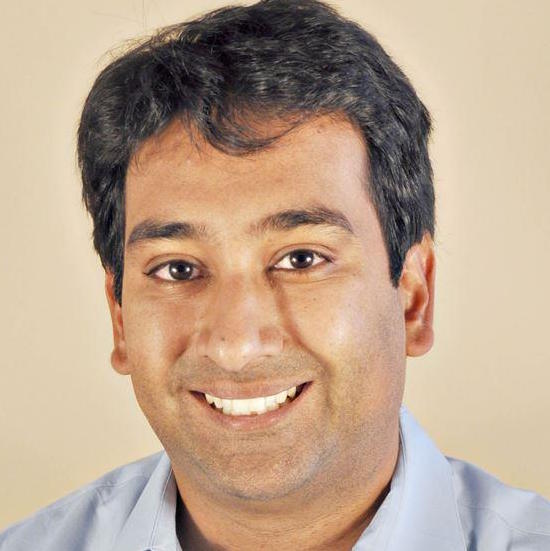Editor’s note: “Our COVID-19 Fighters” is an occasional series highlighting the ways the CU Anschutz Medical Campus community is helping patients and the wider community in the fight against the pandemic. We welcome your story ideas; please share them here.
As the COVID-19 pandemic continues to lurk in many communities, aided by vaccine hesitancy and the emergence of disease mutations like the Delta variant, physicians are still looking for effective ways to treat those who test positive for the virus.
The Colorado Clinical and Translational Sciences Institute (CCTSI) on the University of Colorado Anschutz Medical Campus is part of an effort to increase awareness and uptake of monoclonal antibody treatments for COVID-19. The treatment has an emergency use authorization from the FDA, and researchers at CCTSI have a grant from the National Institutes of Health to aid in its adoption.
“We want to have effective treatments for patients if and when they do get sick,” says Adit Ginde, MD, professor of emergency medicine at the University of Colorado School of Medicine and principal investigator on the study. “Patients are still getting sick, they’re still getting hospitalized, and they’re still dying. My concern is that’s going to increase with the Delta variant.”
Treatment leads to reduced hospitalization
In clinical trials since last summer, monoclonal antibodies showed remarkable efficacy to reduce hospitalization and death by up to 90% among patients who were within the first seven to 10 days of symptoms. The treatment — antiviral proteins that essentially neutralize the virus and prevent it from replicating and infecting cells — is administered in a one-time, 30-minute intravenous infusion that starts working within hours.
Marion Sills, MD, MPH, a professor of pediatrics and emergency medicine at the CU School of Medicine, received the treatment one day after being diagnosed with COVID-19.
“Eighteen hours after the infusion I noticed a rapid, marked improvement in my symptoms,” she says. “Even having reviewed the latest peer-reviewed scientific evidence showing that monoclonal antibodies lower the risk of progression to severe symptoms and hospitalization, I was still astounded by the improvement I experienced.”
Sills, who works as an emergency physician at Children’s Hospital Colorado, is now spreading the word about the treatment and its effectiveness.
“It is of critical importance that we raise public awareness about monoclonal antibodies,” she says. “We are still seeing plenty of cases of COVID-19 in the emergency department — nearly all in the unvaccinated. We know we can reduce the severity of illness and the number of hospitalizations if more infected individuals speak with their physicians about monoclonal antibody treatment and if all eligible Coloradans get vaccinated as soon as possible.”
Obstacles to treatment and working on solutions
Removing obstacles is an important mission, Ginde says, as right now, less than 5% of eligible patients are getting treated with monoclonal antibodies.
“It’s a one-time, intravenous infusion, but that creates logistical hurdles to get these patients identified, infused and treated quickly,” Ginde says.
Among those hurdles are access and transportation issues, particularly among racial and ethnic minorities; low awareness of the treatment among patients and providers; cost concerns (unlike the vaccines, the drug itself is free but the infusion process is not); and a disconnect between patients and providers that has been created by testing protocols during COVID-19.
“With other diseases, you have symptoms, and you either talk to your doctor or you go visit your primary care, and they say, ‘Let me order this test to see if you have this disease, and if you have this disease I’ll let you know, and we’ll call in the treatment,’” Ginde says. “With COVID-19, most people self-present at testing centers, likely without the knowledge of their primary care provider. They may or may not share the results with the provider, and if the patient doesn’t know a treatment exists and they’re not told a treatment exists, then they have no reason to contact their provider.”
Currently, Ginde says, patients who test positive at a pharmacy or public testing center are told simply to isolate themselves for a certain period of time and to go to a hospital if symptoms get worse. He and the mAb Colorado team are working with county health departments throughout Colorado to add awareness of the monoclonal antibody treatment to the public health narrative and let patients know where they can go to receive the infusion.
“We’re trying to let them know there is a treatment that will markedly reduce duration and symptoms of the disease,” he says. “We don’t want patients to get worse and require hospitalization, but that’s only 5%–10% of people who get sick. The other 90% still have a significant symptomatic burden that can last weeks, months or even longer. The monoclonal antibody treatment can decrease symptom duration by an average of four days and get patients back to work and their activities. We suspect that it also can prevent people from generating long-term symptoms of COVID-19 — the ‘long-hauler syndrome’ — so our research can help provide some data on the effectiveness in that context as well.”
Tracking recovery and aiding in future planning
For the other part of the study, Ginde and CCTSI researchers — aided by the center’s implementation science, biostatistics, and informatics cores — are following patients who are eligible for the treatment to understand why they do or don’t receive it, and what the recovery process is like for both groups.
“We evaluate whether they had ER visits or hospitalizations; evaluate their symptom recovery and essentially analyze ongoing data about how patients who do and don’t get treatment recover,” Ginde says.
Results of both parts of the study will aid doctors as the COVID-19 pandemic continues, he says, but they also will help to create a framework for future public health emergencies.
“We’re hoping this will become a model for outpatient treatment of time-sensitive infectious diseases in general, especially in pandemic circumstances — how to get treatment out, how to inform providers and patients quickly,” Ginde says. “Normally when something turns out to be effective, it can take seven to 10 years before it’s fully incorporated and practiced. We don’t have that kind of time. We have to accelerate that timeline as fast as we can.”
For more information on the monoclonal antibody treatment, visit medschool.cuanschutz.edu/mab-Colorado.




